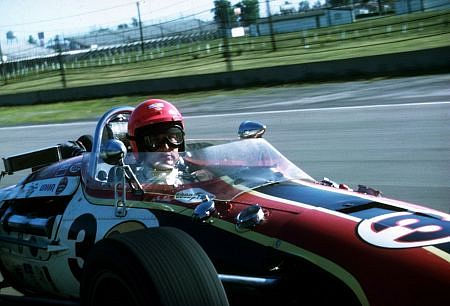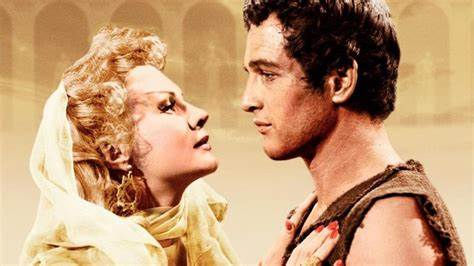top of page
Search
Drama
Classic Drama Films from 1930 - 1999


Anastasia (1956)
Anastasia (1956) is a poignant historical drama wrapped in mystery and intrigue, bolstered by rich performances and elegant direction. The film marked a triumphant return to Hollywood for Ingrid Bergman, who had been effectively exiled from American cinema for several years following personal scandal. Her portrayal of a fragile woman possibly descended from royalty brought her an Academy Award for Best Actress, cementing both her talent and resilience.

Soames Inscker
4 min read


Fatal Attraction (1987)
Fatal Attraction (1987) is one of the most iconic psychological thrillers of the 1980s—a sleek, suspenseful, and deeply provocative film that became a cultural phenomenon upon its release. Directed by Adrian Lyne, known for his stylized, sensual filmmaking (9½ Weeks, Indecent Proposal), the film explores themes of infidelity, obsession, gender politics, and psychological breakdown.

Soames Inscker
5 min read


Winning (1969)
Winning (1969) is a racing drama that occupies an intriguing space in the career of Paul Newman and in the pantheon of American sports films. Often overshadowed by Newman’s better-known works like Cool Hand Luke (1967) or Butch Cassidy and the Sundance Kid (1969), Winning holds significance not only for its portrayal of the high-octane world of professional car racing but also because it sparked Newman’s real-life passion for motorsports.

Soames Inscker
5 min read


On the Waterfront (1954)
On the Waterfront is one of the most powerful and influential American films of the 20th century. Directed by Elia Kazan and released in 1954, it combines social realism with emotional intensity to explore corruption, conscience, and redemption. Its story, based on real events surrounding longshoreman union corruption on the New York and New Jersey docks, speaks to both its era and timeless human dilemmas.

Soames Inscker
5 min read


Horror of Dracula (1958)
Horror of Dracula (1958), known simply as Dracula in its native UK, marks a pivotal moment in horror cinema. Directed by Terence Fisher and produced by Hammer Films, the movie revitalized Gothic horror for a new generation, introducing bold color, heightened sensuality, and unprecedented violence to a genre that had become staid and theatrical by the mid-20th century.

Soames Inscker
5 min read


Witness for the Prosecution (1957)
Witness for the Prosecution (1957) is a dazzling courtroom drama that masterfully blends suspense, wit, and character study, all under the brilliant direction of Billy Wilder. Adapted from Agatha Christie's celebrated stage play, the film stars Charles Laughton, Marlene Dietrich, and Tyrone Power in a narrative filled with sharp turns, biting dialogue, and one of the most memorable twist endings in cinema history.

Soames Inscker
5 min read


Rio Bravo (1959)
Rio Bravo (1959) is widely considered one of the finest and most influential Westerns in American film history. Directed by the legendary Howard Hawks and starring John Wayne at the height of his powers, the film is a richly entertaining blend of action, character study, and camaraderie.

Soames Inscker
5 min read


The Searchers (1956)
Widely considered one of the greatest Westerns—and indeed, one of the greatest films—ever made, The Searchers (1956) represents the artistic pinnacle of director John Ford and a career-defining role for star John Wayne. At once a sweeping frontier epic and a brooding psychological drama, the film transcends the boundaries of the Western genre to examine themes of racism, obsession, vengeance, and the enduring search for belonging.

Soames Inscker
5 min read


Life With Father (1947)
Set in the Victorian era, the film chronicles the everyday life of the Day family, headed by the red-haired, irascible yet loving father, Clarence Day Sr. (William Powell). He is a stockbroker, a perfectionist, and a man who believes the household should run with the same efficiency and logic as a business.

Soames Inscker
4 min read


Wall Street (1984)
Released in 1987 at the height of Reagan-era capitalism, Wall Street is a slick, stylish, and scathing morality play that explores the seductive lure of wealth, the blurred lines between ambition and greed, and the ethical vacuum at the heart of corporate finance. Directed and co-written by Oliver Stone, the film serves as both a cautionary tale and a cultural time capsule—capturing the late-'80s ethos of materialism and the growing influence of Wall Street on American life.

Soames Inscker
4 min read


Splash (1984)
Splash is a landmark film in several respects. Directed by Ron Howard and released in 1984, it marked the debut feature of Disney's newly established Touchstone Pictures label—created to produce more mature fare than the traditional Disney brand allowed.

Soames Inscker
4 min read


Room For One More (1952)
Room for One More is a heartfelt 1952 comedy-drama that blends warm domestic humor with sincere emotional depth. Directed by veteran filmmaker Norman Taurog, known for his deft touch in light-hearted family fare (Boys Town, The Adventures of Tom Sawyer), this film stars real-life husband and wife Cary Grant and Betsy Drake. While not one of Grant’s more flamboyant or iconic vehicles, it provides a gentle, deeply personal look at family life and social responsibility through t

Soames Inscker
4 min read


A Star is Born (1976)
The 1976 version of A Star Is Born marks the third cinematic iteration of a now-legendary Hollywood story—tracing the rise of a young performer as she eclipses the fading star who mentors her. Whereas the 1937 and 1954 versions (starring Janet Gaynor and Judy Garland, respectively) were set in the film industry, this update transposes the drama into the world of the 1970s rock music scene.

Soames Inscker
5 min read


Grand Prix (1966)
Grand Prix (1966) is a monumental achievement in sports filmmaking, widely regarded as one of the most visually stunning and technically groundbreaking films about auto racing ever produced. Directed by the brilliant John Frankenheimer—hot off a run of critically acclaimed work like The Manchurian Candidate—the film blends fictional narrative with real-life Grand Prix racing to create a sweeping, globe-trotting cinematic spectacle.

Soames Inscker
4 min read


Sweet Smell of Success (1957)
Sweet Smell of Success is a masterwork of cinematic cynicism—an electrifying descent into the dark heart of New York's nightlife, where ambition, betrayal, and moral decay swirl under neon lights and jazz riffs.

Soames Inscker
4 min read


The Defiant Ones (1958)
The Defiant Ones is a landmark American film, both socially and cinematically. Released in 1958 and directed by Stanley Kramer, it boldly tackled the subject of racism and human equality during a time when such topics were often diluted or avoided in Hollywood.

Soames Inscker
4 min read


Every Which Way But Loose (1978)
Every Which Way But Loose is a film that defied expectations and box office predictions. Starring Clint Eastwood—then best known for his stoic, hard-edged roles in Westerns and crime dramas—it marked a striking detour into the realm of redneck comedy, complete with bar brawls, honky-tonk ballads, and a scene-stealing orangutan named Clyde.

Soames Inscker
4 min read


The Silver Chalice (1954)
The Silver Chalice (1954) was part of Hollywood’s mid-20th-century boom in religious and historical epics, released amid the popularity of grand Technicolor spectacles such as Quo Vadis (1951), The Robe (1953), and Ben-Hur (1959).

Soames Inscker
4 min read


Spellbound (1945)
Spellbound is Alfred Hitchcock’s first major foray into psychoanalysis as a thematic and narrative device. Adapted from the novel The House of Dr. Edwardes by Hilary Saint George Saunders and John Palmer, it follows a psychiatrist (Ingrid Bergman) who must unravel the mystery behind a man (Gregory Peck) claiming to be the new director of a mental hospital—only to discover he may be an impostor and murderer suffering from amnesia.

Soames Inscker
4 min read


The Cockleshell Heroes (1955)
The Cockleshell Heroes is a compelling British war film based on the real-life Operation Frankton, a daring 1942 British Royal Marines raid on German shipping in the port of Bordeaux. Directed by and starring José Ferrer, the film was a rare attempt in the 1950s to dramatize British military heroism with an American-Hollywood sensibility while retaining a fundamentally British tone.

Soames Inscker
4 min read
bottom of page


